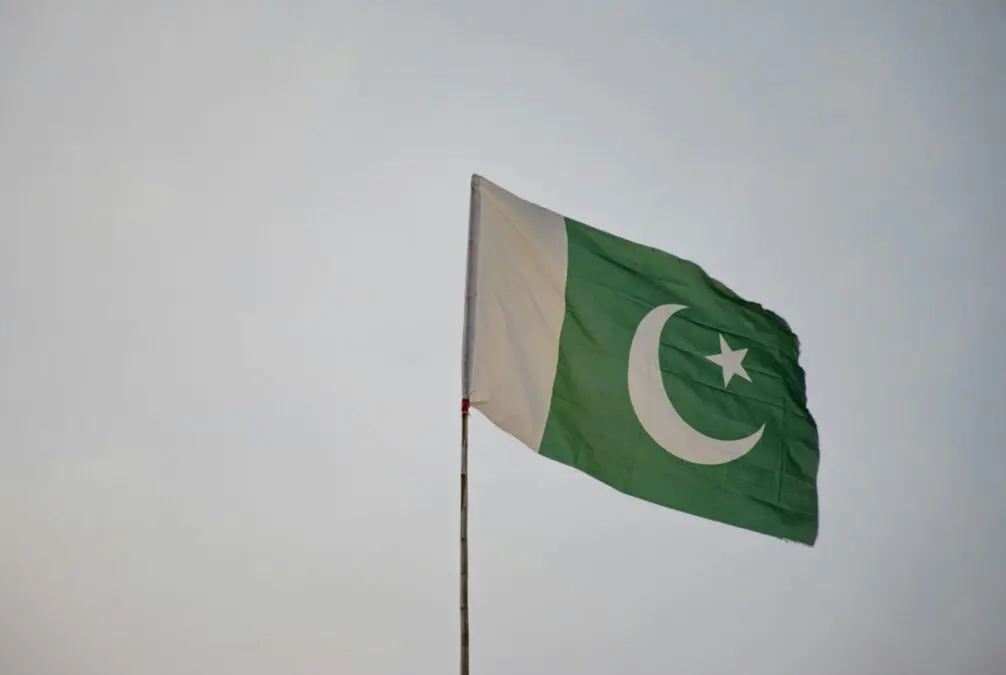Introduction For a period, the Ahmadiyya Muslim community in Pakistan has endured persecution and bias despite the constitutional assurance of religious freedom in the country. The situation has worsened recently, with extremist factions such as Tehrik-e-Labaik (TLP) stoking animosity and aggression towards the Ahmadis. The oppression has reached a point where many Ahmadis are obliged to flee Pakistan to ensure the safety of their families and practice their religion freely. Organizations like the International Human Rights Committee (IHRC) and the Coordination des Association et des Particulier pour la Liberté de Conscience (CAP-LC) have been actively raising awareness and advocating for the rights of the Ahmadiyya Muslim community.
The Role of Tehrik-e-Labaik in Persecuting Ahmadis In an incident documented by IHRC, a 16-17-year-old student named Syed Ali Raza, associated with a local Ahl-e-Sunnat Madrasa (Islamic school), was identified as the alleged perpetrator in the killing of two Ahmadiyya Muslims, Ghulam Sarwar and Rahat Ahmad Bajwah. The report also implicated Sajid Lateef, Chief Organizer of the Madrasa, as a figure engaged in targeting Ahmadis. This incident underscores how extremist groups like TLP are increasingly targeting and oppressing members of the Ahmadiyya community, forcing many to seek refuge in other countries.
TLP has been prominently involved in spreading anti-Ahmadi sentiments and perpetrating violence within Pakistan. The group has used their influence to push the government to take action against the Ahmadiyya Muslim, often resorting to protests and threats. This has created a climate of fear and intimidation for the Ahmadiyya Muslim community, leading many to live in seclusion or leave the country altogether.
There has been condemnation from organizations like IHRC and CAP-LC against the persecution of the Ahmadiyya Muslims in Pakistan. They are urging the international community to pressurize the government to safeguard the rights of the Ahmadiyya Muslim people and bring those responsible for these actions to justice. These organizations are calling on authorities to halt the TLP’s activities and align their laws with international standards as outlined in the International Covenant on Civil and Political Rights (ICCPR).
The struggles faced by the Ahmadiyya Muslim community in Pakistan have garnered attention worldwide, with human rights groups and religious leaders from various countries calling for action. CAP-LC and IHRC have been actively working towards raising awareness about the challenges encountered by the Ahmadiyya Muslims through campaigns, conferences, and advocacy initiatives.
During a conference organized by CAP-LC and IHRC, religious leaders deliberated on protecting freedom of religion and belief for all individuals. The participants at the conference emphasized safeguarding the rights of minorities and holding governments accountable for their actions.
Pakistan’s inability to safeguard the Ahmadiyya Muslims and fulfill its international responsibilities remains a pressing issue despite attempts to address it. The government’s failure to shield the Ahmadiyya Muslim community and its role in mistreating minority groups stain its reputation and go against its commitments. It is imperative for the world not to remain silent in the face of these violations of dignity and the sanctity of life.
The Universal Declaration of Human Rights, Article 18, affirms that “Everyone has the right to freedom of thought, conscience, and religion; this right includes freedom to change his religion or belief, and freedom, either alone or in community with others and in public or private, to manifest his religion or belief in teaching, practice, worship, and observance.” Unfortunately, in Pakistan, members of the Ahmadiyya Muslim community are deprived of this right, leading many to seek refuge in other countries to practice their faith freely and ensure their safety.
Various international bodies, such as the United Nations and global human rights organizations, have consistently raised alarms about the mistreatment of the Ahmadiyya Muslims in Pakistan. Recently, on July 13, 2021, UN human rights experts expressed concerns about the ongoing human rights abuses suffered by the Ahmadiyya Muslims worldwide. They urged the international community to intensify efforts to halt the persecution faced by Ahmadis.
The Lahore High Court Bar Association issues a directive that demands attention. Amid the crisis, the Lahore High Court Bar Association has taken a concerning step by instructing police officials to take legal action against Ahmadi Muslims who gather, observe, and pray during Muslim Eid festivities. Referring to laws that designate Ahmadis as “Non-Muslims” and using inflammatory language, the lawyers’ association has aligned with views similar to those of radical Mullahs and Clerics who have incited violence recently.
This directive from the Bar Association is viewed as another effort to justify the persecution of Ahmadis and deny them their right to practice their beliefs. Dr. Aaron Rhodes, President of the Forum for Religious Freedom-Europe, has condemned this action as “shocking” and called on bar associations worldwide to encourage their counterparts to combat religious intolerance and violence.
The Tense Situation Leading up to Eid-ul-Adha The situation becomes more delicate as Pakistan prepares to celebrate the Eid-ul-Adha Festival in mid-June 2024—an occasion for Muslims. With Ahmadis living in fear and at risk of repercussions for their faith practices, it is imperative for the global community to act promptly in safeguarding their safety and right to expression.
Human rights advocates have shown concern about the worsening situation in Pakistan. They fear that legal directives targeting Ahmadis for practicing their beliefs might lead to violence and instability in the nation, further escalating the exodus of Ahmadis seeking refuge in other countries.
CAP-LC and IHRC play a role in supporting the rights of the Ahmadiyya Muslim community in Pakistan. They are urging the international community to exert pressure on the government to ensure the protection of all citizens, regardless of their faith, and to create an environment where Ahmadis can live and practice their religion without fear of persecution or the need to flee their homeland.
These organizations stress that it’s not only about defending the rights of the Ahmadiyya Muslim but also about upholding human rights and legal standards. Remaining silent in the face of violations of human dignity and life’s worth is unacceptable.
CAP-LC and IHRC have been relentless in their efforts to raise awareness and advocate for the Ahmadiyya Muslim community. They have employed methods, including campaigns, conferences, and advocacy initiatives, to prompt the government to fulfill its responsibilities and safeguard its citizens’ rights.
The ongoing battle for freedom on a global scale is highlighted by the challenging circumstances in Pakistan. The plight of the Ahmadiyya Muslim community serves as a reminder of the quest for universal human rights and religious liberty that transcends local boundaries.
With the Eid-ul-Adha Festival on the horizon, uncertainty looms over the future of the Ahmadiyya community in Pakistan. The unjust threats, violence, and legal oppression they endure starkly contradict their rights as human beings. It is imperative for the international community to not overlook these violations and unite to ensure that Ahmadis in Pakistan can practice their faith without fear or intimidation, and without being forced to leave their homeland to seek safety and religious freedom elsewhere.
The persecution faced by the Ahmadiyya Muslims in Pakistan constitutes a breach of freedom and human dignity. Immediate action must be taken by international entities to exert pressure on the government to safeguard the Ahmadiyya community’s well-being and hold perpetrators of violence and discrimination accountable. The advocacy efforts undertaken by organizations like CAP-LC and IHRC are pivotal in championing the cause of freedom for the Ahmadiyya Muslims.
As eyes worldwide remain fixed on developments unfolding in Pakistan, it underscores that the quest for religious freedom transcends borders—a shared struggle that demands attention.
It is crucial for the global community to come together and strongly denounce any form of persecution or discrimination linked to faith. We must collaborate to guarantee that everyone, irrespective of their beliefs, can lead a life of freedom and security in their own homeland. By upholding rights and legal standards, we can strive towards creating a world where religious freedom is accessible to every individual, and no one is forced to flee their country to practice their faith freely and safely.







